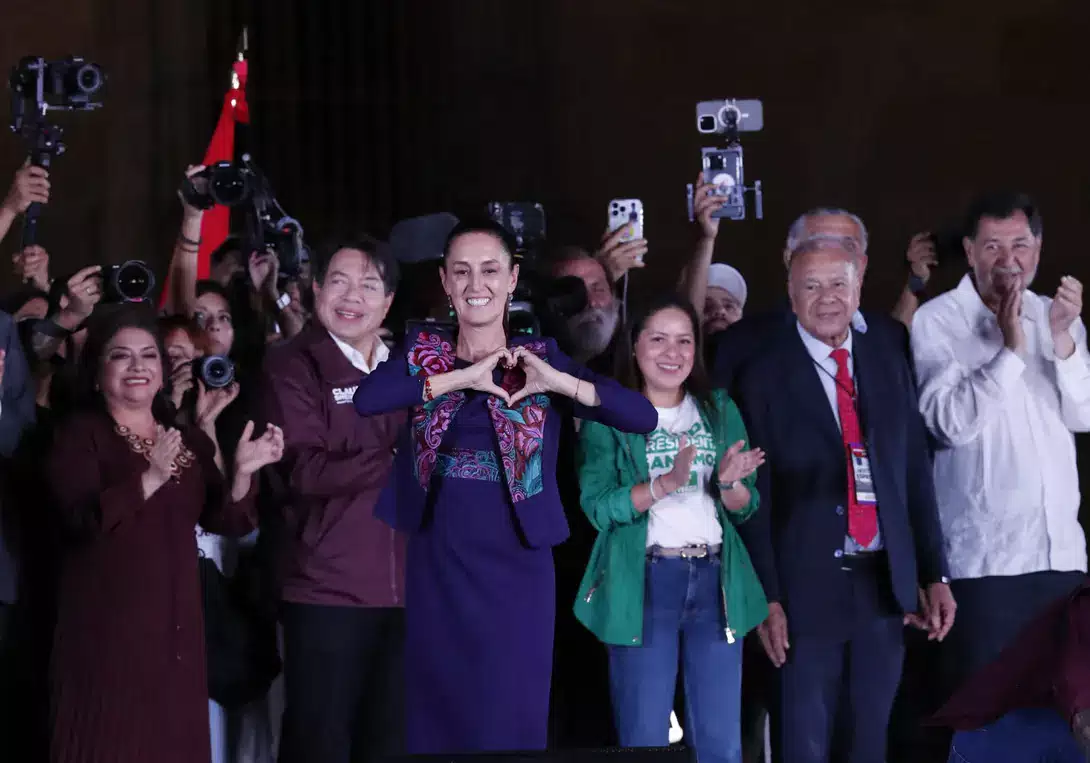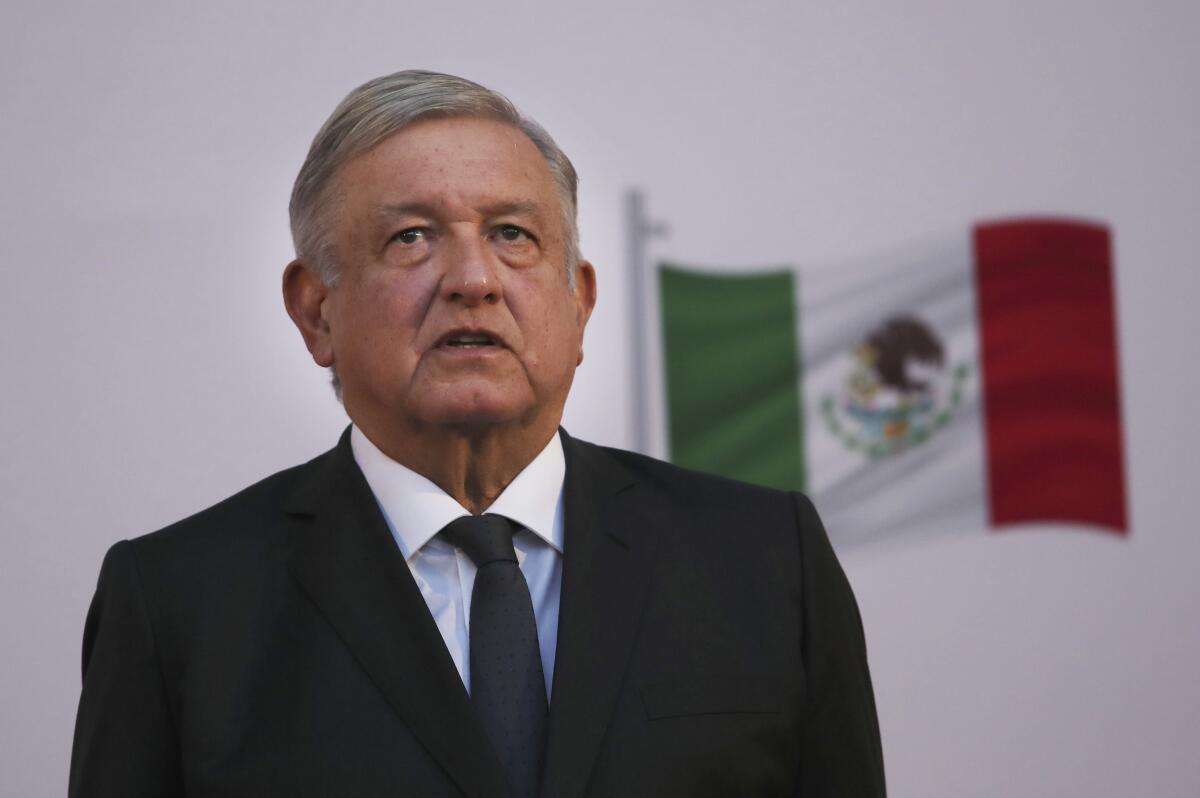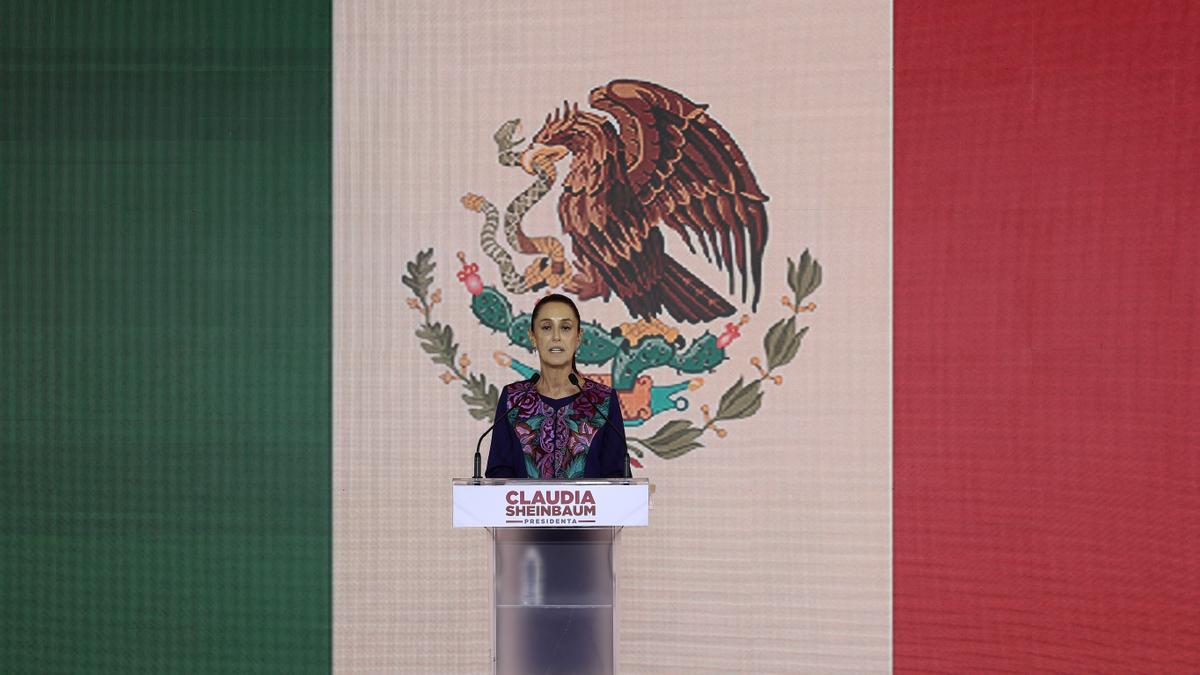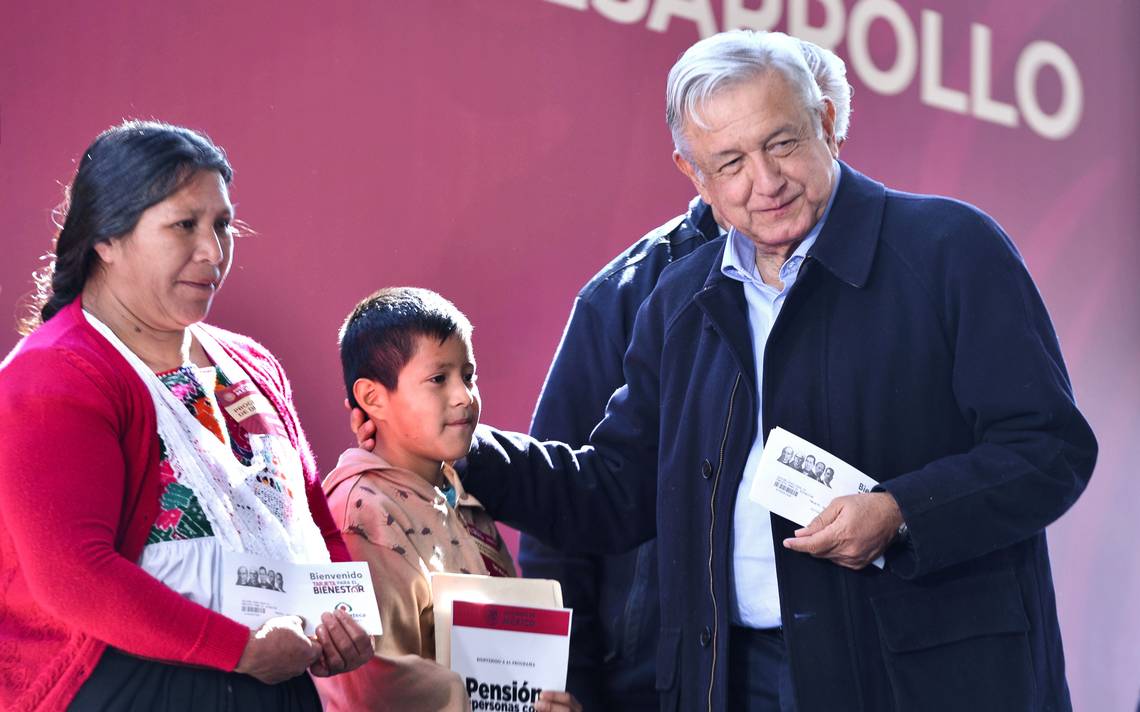Claudia Sheinbaum, a prominent 61-year-old scientist and left-wing politician, has emerged as the key figure to lead Mexico in a new era. Following the administration of Andrés Manuel López Obrador (AMLO), Sheinbaum faces the challenge of addressing one of the largest crises of violence the country has experienced, with almost 190,000 violent deaths during the term of her predecessor. This situation has not only deeply impacted public safety, but has also slowed the country's economic growth.
Sheinbaum's victory in the Mexican elections was expected, but the magnitude of her victory was surprising. With more than 60% of the vote, Sheinbaum will become Mexico's first president on October 1. Her party, Morena (National Regeneration Movement), has secured a qualified majority in the Chamber of Deputies and probably the Senate, allowing it to move forward with constitutional reforms that had stalled in previous years.
These are the main economic challenges that await the new Government headed by Sheinbaum, the first woman president in the
Economic and Security Challenges
Violence and Insecurity
Although violence in Mexico is not uniform and is concentrated in specific areas, its impact on investment and economic growth is significant. Organized crime has infiltrated key industries such as agriculture and mining, exacerbating insecurity. AMLO's "Hugs, not bullets" policy has failed to significantly reduce homicides, and the country continues to record more than 100,000 missing people.
Sheinbaum has promised to attack impunity and focus on the underlying causes of violence. Her strategy includes expanding youth programs, strengthening the National Guard, improving police intelligence and fostering cooperation between institutions in charge of security.
Michael Shifter, an expert at the Inter-American Dialogue think tank, maintains that "the ominous growth of organized crime and flourishing cartels is the most daunting problem that Sheinbaum will need to confront." The president-elect promises to eradicate impunity and, like AMLO, focus on the causes of violence by expanding programs for youth, strengthening the National Guard, more police intelligence and cooperation between institutions in charge of security.
Economy: Challenges and Opportunities
Sheinbaum inherits a fiscal deficit of almost 6%, the highest in 25 years, and an average economic growth of only 0.8% in the last six years. To finance direct aid to 25 million Mexicans and carry out other reforms, she needs to increase state revenues. The commitment to "nearshoring", which involves the relocation of the production of foreign companies to northern Mexico, is a key strategy, but its success will depend on improvements in security, infrastructure and water and energy supply.
Water is a crucial issue, with per capita availability that has decreased 68% since 1960. Sheinbaum, with a doctorate in environmental engineering, has promised to increase investment in clean energy, contrasting with AMLO's commitment to fossil energy and financial support for the indebted Pemex.
Pamela Starr, a Mexico expert at the University of Southern California, sums up the situation: "You need to spend money on many things, and there is no money. The infrastructure is obsolete. Electricity is a problem. Pemex is a problem."
Carlos Ramírez, from the risk consultancy Integralia, warns that "nearshoring is not Mexico's great lifeline" and that its eventual success depends on improving security and infrastructure, water and energy supply.
Alfredo Coutiño, director of Moody's Analytics, points out that the next government will inherit a country with "a financial hole that will limit the room for maneuver." Sheinbaum has stated that he will continue with the current president's projects and add some of his own, but the challenge will be to find the necessary financial resources to do so without triggering an economic crisis due to an uncontrolled increase in debt.
Relationship with the United States: A Diplomatic Challenge
The period of power transition in Mexico coincides with the electoral campaign in the United States, the country's main trading partner. The bilateral relationship is influenced by security, migration and trade issues. The reelection of Joe Biden or the return of Donald Trump in November will be a critical variable that could significantly alter the scenario.
The relationship between Mexico and the United States is also marked by migration and fentanyl trafficking. Sheinbaum has indicated that he will maintain a loving relationship ity and mutual respect with the United States, always defending Mexicans abroad.
Carlos A. Pérez Ricart, professor at CIDE, a Mexican public research center, explains that the election in the United States is “the real variable that will modify scenarios.” If Joe Biden loses and Trump wins, who promises to set up migrant detention camps and deport them en masse, "the biggest challenge that Mexico will face is uncertainty." The trade policy of the northern neighbor is one of the main axes of the US electoral campaign, in which the Democrat, the current president Joe Biden, and the Republican and former president Donald Trump will face each other again. Managing the complex relationship with the United States poses another challenge for Sheinbaum, amid uncertainty about who will win the November presidential election and the review of the Treaty between Mexico, the United States and Canada (USMCA) in 2026, for which Washington may demand compensation. .
Energy and Infrastructure
To capitalize on nearshoring and attract investment, Mexico needs substantial improvements in its energy supply, especially renewable energy, and in the modernization of basic transportation and water infrastructure. Sheinbaum has promised to create 100 new industrial parks across the country to take advantage of business relocation near the United States.
Pemex, the state oil company, faces a difficult financial situation. Sheinbaum plans to renegotiate its debt and refocus the company on renewable energy, although government fiscal support for Pemex will continue to be necessary for several years.
Carlos Torres, president of the BBVA financial group, the first bank in Mexico, assured that "if Mexico is capable of solving this bottleneck and also the existing ones in transportation infrastructure or water supply and adopts the correct measures in energy matters," Foreign direct investment will increase “very significantly” in the country.
Infrastructure Mega Projects
The outgoing government has promoted several infrastructure megaprojects that Sheinbaum will continue. Among them, the Mayan Train stands out, which will connect five states in the Mexican southeast, the Tulum International Airport and the Interoceanic Railway. These projects seek to promote regional development and tourism, as well as improve connectivity and trade. The Felipe Ángeles International Airport and the Mexico-Toluca Interurban Train are other key projects that are expected to boost the country's economy and infrastructure.
The outgoing government bet heavily on infrastructure megaprojects. The controversial Mayan Train stands out, which will connect five states in southeastern Mexico to promote their socioeconomic development, despite criticism for its environmental impact. To support tourism, the Tulum International Airport was built in Quintana Roo. In addition, the Interoceanic Railway was strengthened to connect the ports of Coatzacoalcos and Salina Cruz to boost international trade and passenger transportation. Another emblematic project is the Felipe Ángeles International Airport (AIFA), built to alleviate air traffic in the center of the country after the cancellation of the Texcoco Airport. The AIFA, increasingly crowded, will have an extension of the Suburban Train to connect with the center of Mexico City. Additionally, the Mexico-Toluca Interurban Train, now called 'El Insurgente', began under Enrique Peña Nieto and was taken up by AMLO, and is partially functional.
Claudia Sheinbaum faces a path full of challenges when assuming the presidency of Mexico. Violence, the fiscal deficit and the need to improve infrastructure are some of its most urgent challenges. However, with a strong popular mandate and a focus on democracy and plurality, Sheinbaum has the opportunity to lead a significant transformation in the country.
Her success will depend on her ability to implement key reforms, improve security and attract investments that drive sustainable economic growth. With a clear vision and a commitment to democratic values, Sheinbaum is well positioned to mark a new era in Mexican history.






Comentarios